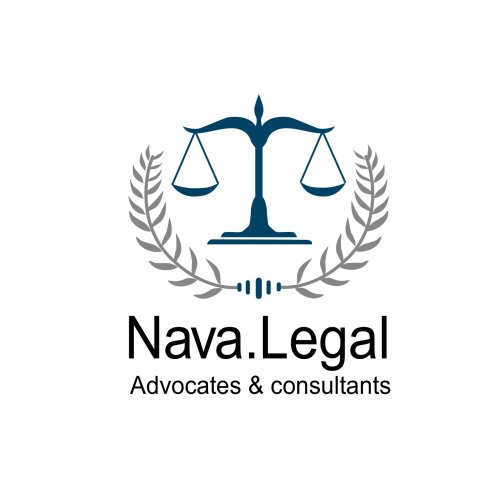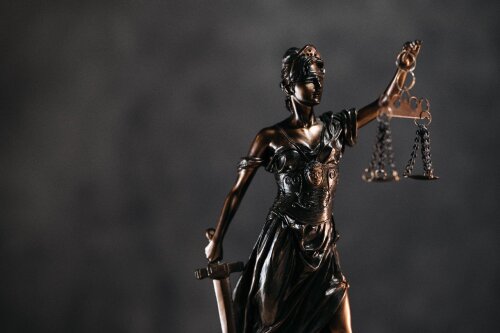Best Debt & Collection Lawyers in Mumbai
Share your needs with us, get contacted by law firms.
Free. Takes 2 min.
List of the best lawyers in Mumbai, India
About Debt & Collection Law in Mumbai, India
Debt & Collection law in Mumbai, India, involves regulations and practices that govern the recovery of debts by creditors. It encompasses the legal processes that creditors must follow to collect debts owed to them while ensuring debtor rights are protected. In Mumbai, these laws are influenced by various national frameworks and local laws, ensuring fair practices in debt recovery and addressing issues such as harassment by collection agencies and the liabilities of debtors.
Why You May Need a Lawyer
There are several circumstances where individuals or businesses may require the assistance of a lawyer specializing in Debt & Collection:
- You are a creditor seeking to recover unpaid debts from debtors.
- You are a debtor facing aggressive debt collection efforts and need protection.
- You are involved in complex disputes over the terms of repayment or debt validity.
- You require guidance on the legal procedures for filing a case to recover debts or defending against one.
- You need advice on restructuring your debts to avoid insolvency or bankruptcy.
Local Laws Overview
Mumbai follows several key laws relevant to Debt & Collection:
- The Indian Contract Act, 1872: Governs contractual obligations and the rights of creditors and debtors.
- The Negotiable Instruments Act, 1881: Deals with issues related to promissory notes, bills of exchange, and cheques, including their dishonor.
- The Recovery of Debts and Bankruptcy Act, 1993: Provides mechanisms for banks and financial institutions to recover debts quickly.
- The Insolvency and Bankruptcy Code, 2016: Offers a unified framework for resolving insolvency and bankruptcy issues for individuals as well as businesses.
- The Consumer Protection Act, 2019: Protects debtors from unfair practices by creditors and collection agencies.
Frequently Asked Questions
What should I do if I am being harassed by debt collectors?
If you are facing harassment, document all instances and seek legal advice. Harassment by debt collectors is prohibited under the Consumer Protection Act, and legal actions can be taken against such practices.
Can a debt be collected if I have not been provided with a written notice?
In most cases, written notice is crucial as it serves to formally demand debt repayment. Lack of this notice can be a ground to dispute the collection process.
What is the statute of limitations for debt collection in Mumbai?
Typically, the limitation period for filing a suit for recovery of debts is three years from the date of default, although this can vary based on contractual terms.
Can I settle my debts for less than I owe?
Yes, debt settlement is possible through negotiation with creditors. It is essential to document any settlement agreement in writing to avoid future disputes.
What are the legal consequences if I fail to repay my debts?
Failure to repay debts can lead to legal actions, including court orders, garnishment of wages, or seizure of assets, depending on the nature and terms of the debt agreement.
Can creditors take legal action without notice?
Creditors are typically required to provide notice before initiating legal action, giving the debtor an opportunity to settle the debt or dispute the claim.
What happens if a cheque bounces?
If a cheque bounces, the issuer can face legal action under the Negotiable Instruments Act, which includes civil and criminal liabilities unless resolved amicably.
How can I protect myself from unfair debt collection practices?
Understanding your rights, maintaining accurate records of all communications, and consulting a legal expert can protect you from unfair practices.
Do I need a lawyer to settle a debt?
While not mandatory, having a lawyer ensures that all negotiations and settlements are legally sound and protect your interests.
Can personal loans be included in bankruptcy proceedings?
Yes, personal loans can be addressed in bankruptcy proceedings under the Insolvency and Bankruptcy Code, which provides structured resolutions.
Additional Resources
Here are some useful resources for those needing legal advice in Debt & Collection:
- Mumbai District Legal Services Authority (DLSA): Offers free legal services and advice to individuals in need.
- The Securities and Exchange Board of India's Investor Grievance Redressal Mechanism: For financial grievances related to securities and financial markets.
- Bank Lokpal: Can handle complaints against banks and financial institutions regarding unfair debt practices.
Next Steps
If you seek legal assistance in Debt & Collection, consider the following actions:
- Consult a qualified lawyer specializing in Debt & Collection law for personalized advice and guidance.
- Gather and organize all relevant documentation related to your debt situation.
- Understand your legal rights and obligations to advocate effectively for your interests.
- Explore alternative dispute resolution methods such as mediation to avoid lengthy court battles.
Lawzana helps you find the best lawyers and law firms in Mumbai through a curated and pre-screened list of qualified legal professionals. Our platform offers rankings and detailed profiles of attorneys and law firms, allowing you to compare based on practice areas, including Debt & Collection, experience, and client feedback.
Each profile includes a description of the firm's areas of practice, client reviews, team members and partners, year of establishment, spoken languages, office locations, contact information, social media presence, and any published articles or resources. Most firms on our platform speak English and are experienced in both local and international legal matters.
Get a quote from top-rated law firms in Mumbai, India — quickly, securely, and without unnecessary hassle.
Disclaimer:
The information provided on this page is for general informational purposes only and does not constitute legal advice. While we strive to ensure the accuracy and relevance of the content, legal information may change over time, and interpretations of the law can vary. You should always consult with a qualified legal professional for advice specific to your situation.
We disclaim all liability for actions taken or not taken based on the content of this page. If you believe any information is incorrect or outdated, please contact us, and we will review and update it where appropriate.

















